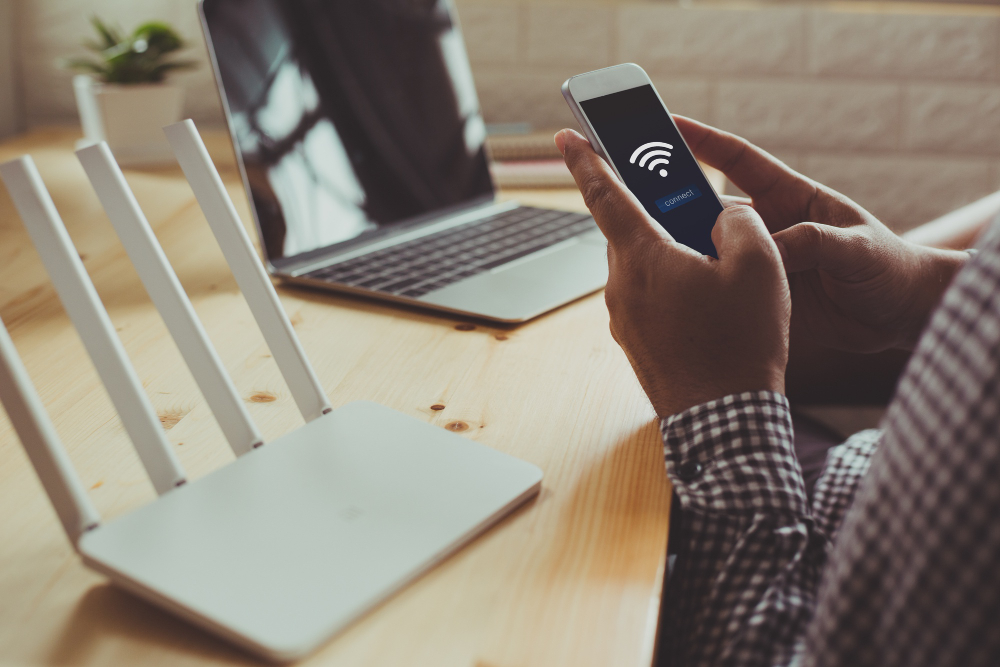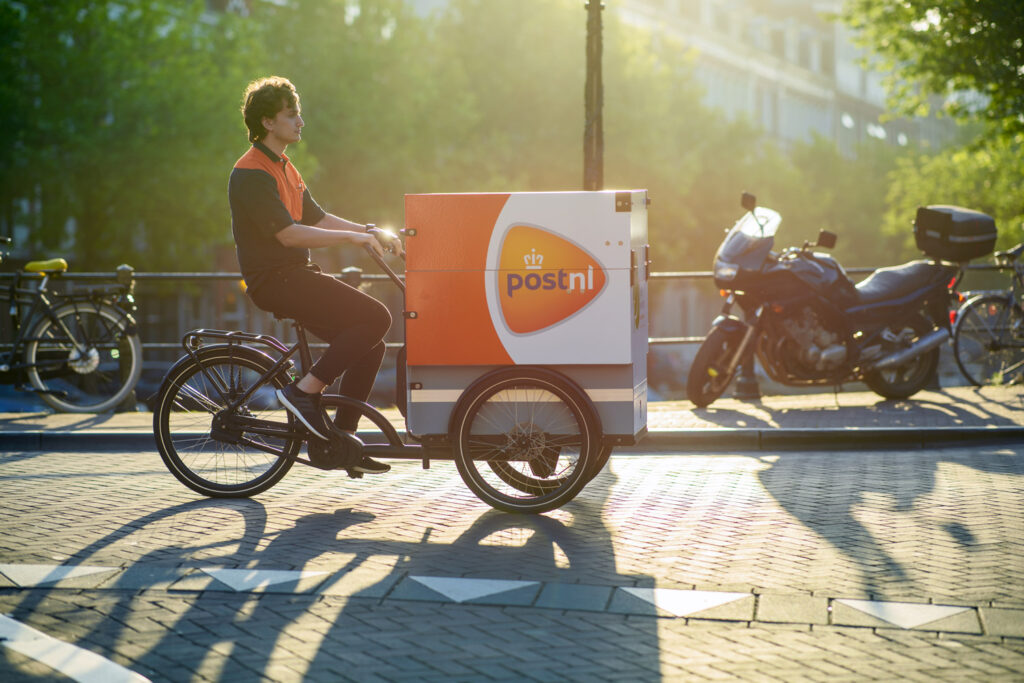So you’re moving to a new house (verhuizen) within the Netherlands? In need of a checklist because you can’t be bothered to make your own? Don’t worry, we’ve got you covered. 💪
Let’s cut right to the chase, here are 9 things you need to do before you move to a new house in the Netherlands.
1. Let your previous landlord know you’re moving
The first thing you need to do is check your rental agreement. It most likely says you need to give at least one month’s notice to leave the property (in some cases, this can be as much as three!) If you break this agreement, your landlord will get to keep your deposit.
READ MORE | Rental deposits in the Netherlands: how to get your cash back
The best thing you can do is let the landlord know as soon as possible, to ensure that everything goes smoothly. Once this is done and once you have left, you should follow up with your deposit and make sure you have got it back (if you haven’t trashed the place, of course).
2. Update your address with the gemeente
This is important as they need an up-to-date address if you want to be legally registered. This means that, if you have a residence permit, it will be invalid if the change of address is not noted.

Note: You also need to do this quickly! If you do not register your change of address within 5 days of moving, you could be fined.
If you are verhuizen within your municipality, you will need to notify Afdeling Burgerzaken (the department of civil affairs) in your municipality.
In some cases, it’s now possible to register this move online. However, if a visit to the municipality is required, you will need to bring an official ID and offer proof of your new address.
If you are moving to a different municipality, you need to register all over again.
Yep, it’s time to book that town hall appointment and head on over there with the necessities: your passport, birth certificate and tenancy agreement. This is also necessary if you claim benefits.
Note: In some municipalities, it is possible to register yourself online or via the post if you cannot make it to the appointment in person. However, the procedure varies depending on the municipality.
3. Update your utility companies
Another important step is that you tell your utility companies that you are moving so you stop getting charged once you’ve paid your final bill and handed over your keys!
Remember that, unless you have a package deal, you need to call your gas, electric, and phone suppliers, as well as any insurance you may have.
A huge thank you to PartnerPete for coming up with this helpful list. They’re experts in managing international’s utilities in the Netherlands. The entire process can be done in English, and they will get your new utilities connected in just 24 hours — all for free! 💪
Also, to make way for the new tenants, make sure to call them up and inform them — you don’t want them using your electricity now, do you? 😉
Once you’ve disconnected from one home, you’re going to have to get reconnected in your new house.
READ MORE | How to set up your utilities in the Netherlands (in English!) with PartnerPete
TIP: We would recommend opting for a package deal where possible, this way, the entire process of setting up your utilities can be done through one company — meaning less room for miscommunications or misunderstandings.
4. Sort out your WiFi — in advance!
Setting up your WiFi in the Netherlands comes with its own trials and tribulations. The best thing you can do in order to make the transition as smooth as possible is to arrange it well in advance of your moving-in date.

While you may be able to leave sorting your other utilities until the last minute, we wouldn’t recommend doing this with your WiFi.
In the Netherlands, it can sometimes take a number of weeks before a router is delivered and an engineer can come over to install it.
Once you know where you will be moving, figure out what the internet situation is (will you be sharing with someone else?) and hop to it!
READ MORE | Setting up internet in the Netherlands: the complete guide
If you have to set up your own WiFi, organise with your supplier in advance in order to get your router installed before or as soon as you move in!
5. Tell your employer, bank, doctor, school…
Don’t forget to tell anyone who provides a service to you about your move. Think accountants, doctors, dentists, therapists, and your local pharmacy. In fact, it may even be necessary to let your gym know. Basically, be as vocal about the move as your aunt Terry on Facebook.
READ MORE | Going to a doctor in the Netherlands? Here’s the ultimate guide
Why? You may need to switch doctors, dentists and schools, so this is something that should be a priority to sort out. Even if you don’t need to switch providers, you should still let everyone know. If not, you may miss out on important mail.
6. Arrange for your post to be forwarded to your new address
Speaking of mail, you’re going to need to update your address! PostNL will do this for free, all you need to do is fill in this form on their website.
Just don’t forget to let them know. It’s best to do this a few weeks before the big move, or some may still stray to your old address.

However, by now, you have informed all the insurance and utility companies of your new address (right? 👀), so important letters won’t get into the wrong hands. 😉
7. Update your car details
Yep, even Joris, who manages your car insurance, needs to get involved in your life update. If you have a car in the Netherlands, then you need to inform your insurance if you change your address. Your vehicle registration should also be changed.
In some instances (if you have a Dutch driving licence, or you have been using your foreign licence for over 10 years), you will need to tell the Department of Road Transport to get it updated on your driving licence.
8. Determine whether your furniture will fit
Moving to a new house can be an exciting time, and sometimes you forget to factor in some very practical and important logistics.
Is your bright purple velvet couch going to fit up your gorgeous (but very narrow) new staircase? If not, you may need to hoist it up through your window — but does your new place have a hoisting hook? 😳

Perhaps the couch and all your other belongings will fit inside your new home but you also need to consider how much you need to move. Do you have your own car to transport everything? Or will you be needing a moving van?
READ MORE | The Amsterdam canal houses: why are they so wonderfully weird?
It’s also important to consider how you will be moving everything into your house. Believe it or not, in the Netherlands, if you need to block a road or street with your car/van while moving, you may need to apply for a street permit (straat vergunning) from the municipality!
Yep, you’ll even have to sketch out what the situation is going to look like for consideration — very Dutch.
9. Do a final check of your old house!
Before you close the door and leave the keys (Friends style), make sure your house is clean, and all of the appliances are turned off. This includes the fridge/freezer, and even the gas, which should be disconnected from the property.
Not quite up for the challenge of making all those phone calls to your utility providers? That’s where PartnerPete steps in. They will mediate with gas, water, phone and electricity providers for you — simply choose your contracts, and you can have your required services in your new home in 24 hours!
How have you experienced moving to the Netherlands? Tell us about them in the comments below!
Editor’s Note: This article was originally published in September 2021, and was fully updated in June 2023 for your reading pleasure.
[…] Netherlands for a variety of different reasons, such as to join your partner, work, study or just live. The permit you get will depend on what your circumstances are and why you are here. Permits […]
Hi Emma, this is indeed a resourceful piece of information and I think I stumbled on this blog at the very right time. Soon my younger brother is planning to move to Netherlands and we were looking for some sort of moving guide. Thanks for this and I am definitely sharing this article with mt brother.